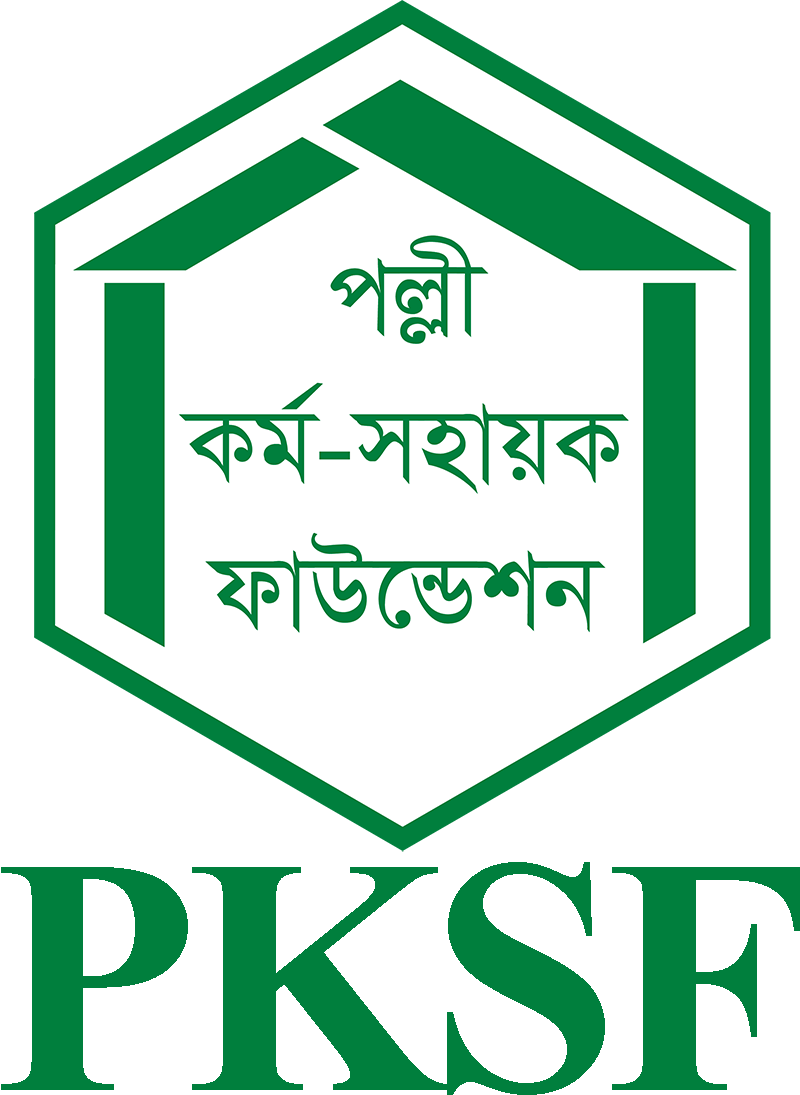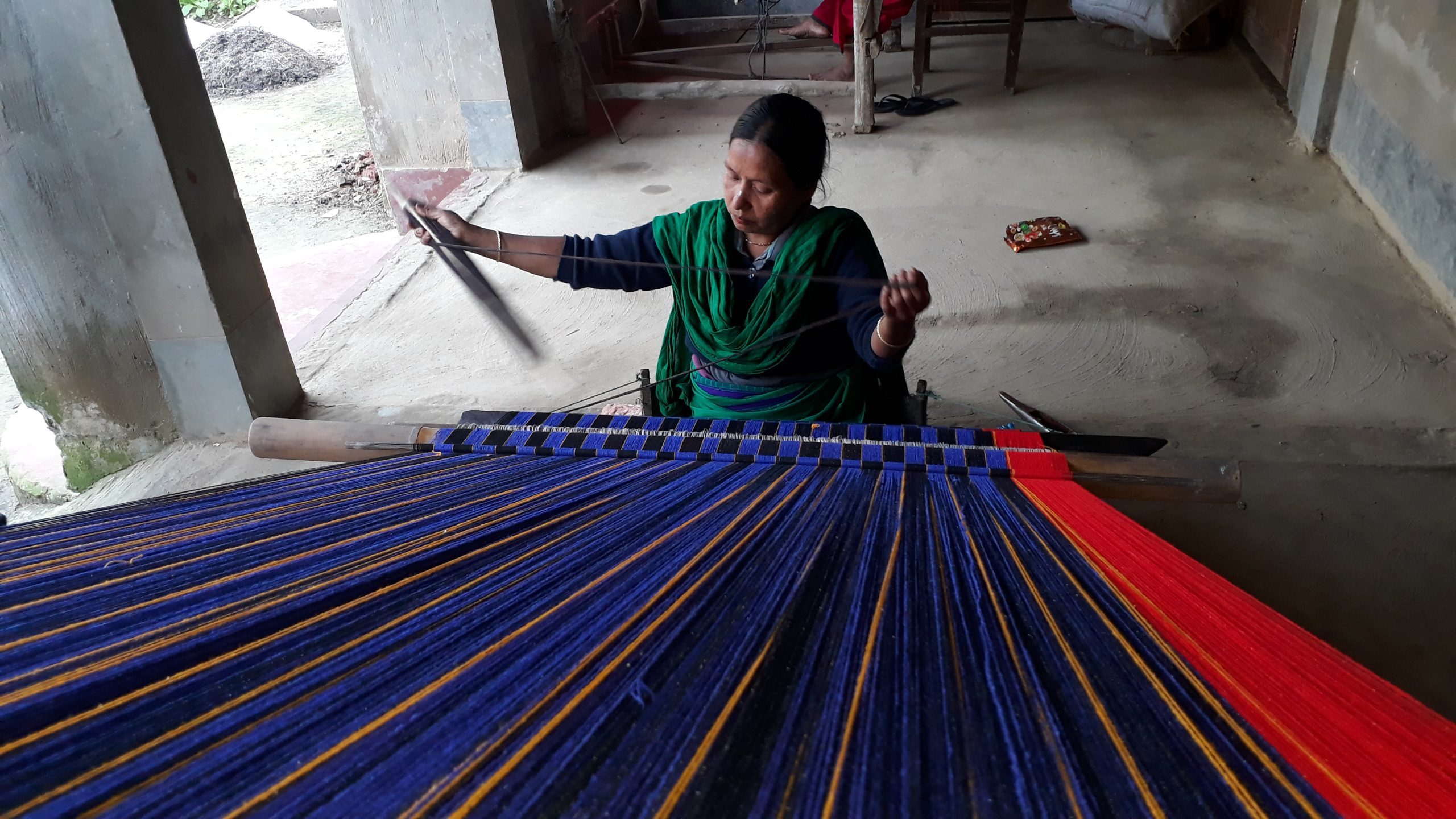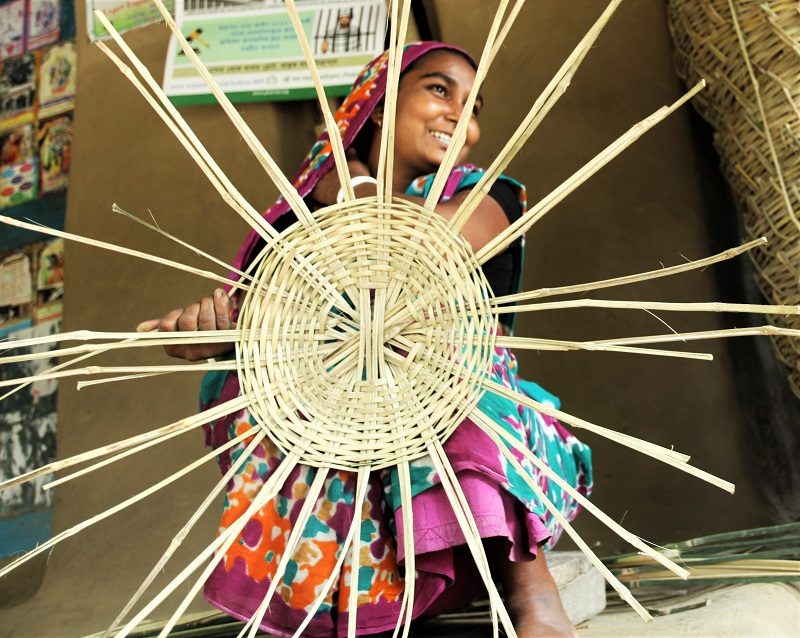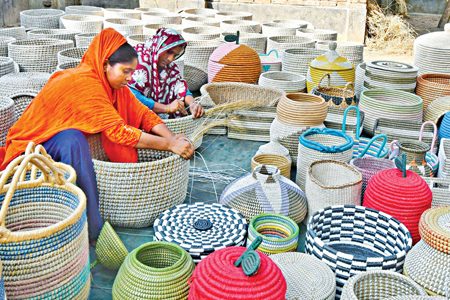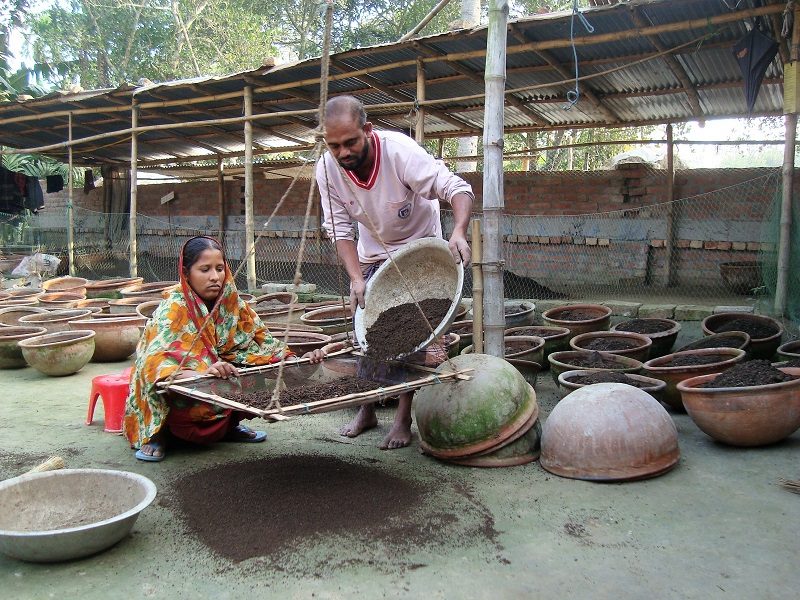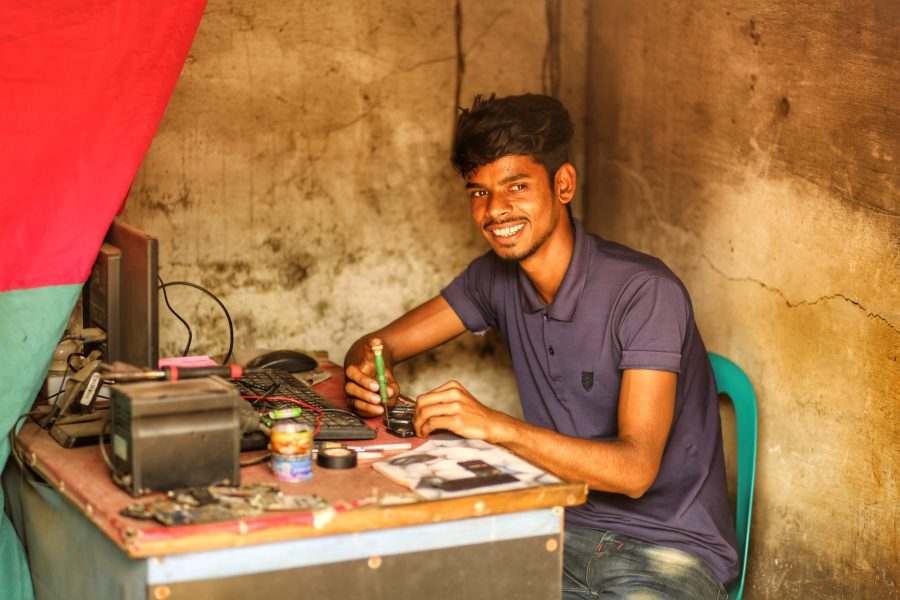Palli Karma-Sahayak Foundation (PKSF) launched its microenterprise (ME) program in 2001, targeting the progressive borrowers of microcredit programs. The program aimed at expediting poverty reduction by expanding opportunities for self and wage employment in Bangladesh. The ME program created scope for micro-entrepreneurs to get bigger loans in order to run and enlarge their businesses. Before the launch of the ME program, the micro-entrepreneurs did not have adequate access to institutional finances. Considering the effectiveness of the MEs in poverty reduction, the government of Bangladesh (GoB) started financing the ME program of the PKSF from 2004. And until 2008, the GoB provided BDT 3,750 million as a grant.
The microenterprise program of the PKSF, later renamed as Agrosor, has been developed through an evolutionary process in line with a specific policy guideline. Although there is no universally-accepted definition of microenterprise, the PKSF defines the ME in terms of its investment size for the sake of convenience to provide financial services. According to the latest ME lending policy of the PKSF, any economic activity with an investment from BDT 40,000 to BDT 1.5 million is considered a microenterprise. An entrepreneur can get a loan of up to BDT 1.0 million as per his/her business requirements. Currently, more than 1.5 million micro-entrepreneurs are receiving financial services through partner organizations (POs). The PKSF piloted two new financial products named ‘Start-up Capital Loan’ and ‘Lease Financing’ to cater to the needs of new entrepreneurs and those who need capital assets acquisition. On completion of the piloting phase, the PKSF is now taking an initiative to replicate these products in other areas.
At the initial stage, the PKSF’s assistance in promoting microenterprise was more or less limited to financial services. However, the foundation gradually intensified its role in the expansion of the ME sector extending to non-financial services too. As the PKSF started delivering services through four POs, it found that capacity enhancement of the POs is a crying need. At the same time, the trade-based skill development of entrepreneurs was considered crucial for the sustainable expansion of their businesses. In this context, the PKSF implemented the ‘Finance for Enterprise Development and Employment Creation (FEDEC)’ project from March 2008 to March 2014 with the financial and technical assistance of the International Fund for Agricultural Development (IFAD).
The PKSF widened its support to expand microenterprises through ‘Promoting Agricultural Commercialization and Enterprise (PACE)’ project. This project is extended until December 2022 to recover the activities affected by the Covid-19 pandemic. Commercialization of agricultural activities is the key focus of the project. The project helps in the value chain development on 16 farm and 15 non-farm business cluster-based economic activity and provides support to transfer appropriate technologies in different microenterprises.
The FEDEC project created a wide range of opportunities for the PKSF to focus on the institutional capacity development of its own and the POs in managing the ME program efficiently. Besides, the project helped extend support to intervene in the value chain of some farm and non-farm business clusters of microenterprises.
The PKSF implemented 44 small-scale value chain projects in different regions of the country with a remarkable success. The value chain interventions made by the PKSF made a good impact through increasing the income of micro-entrepreneurs and creating employment opportunities. Interventions in institutional capacity development of the partner organizations (POs) resulted in the rapid expansion of the microenterprise program. From 2008 to 2013, the number of the MEs supported by the PKSF climbed to 563,000 from 80,000. The outstanding loans reached from BDT 2,621 million to BDT 25,819 million in the same period.
PKSF launched its microenterprise (ME) program
GoB provided BDT 3,750 million as a grant.
PKSF implemented the FEDEC Project
Implementing PACE Project
From 2008 to 2013, the number of the MEs supported by the PKSF climbed to 563,000 from 80,000. The outstanding loans reached from BDT 2,621 million to BDT 25,819 million in the same period.
MEs supported
Outstanding Loan
The PKSF widened its support to expand microenterprises through ‘Promoting Agricultural Commercialization and Enterprise (PACE)’ project. This project is extended until December 2022 to recover the activities affected by the Covid-19 pandemic. Commercialization of agricultural activities is the key focus of the project. The project helps in the value chain development on 16 farm and 15 non-farm business cluster-based economic activity and provides support to transfer appropriate technologies in different microenterprises.
The PKSF widened its support to expand microenterprises through ‘Promoting Agricultural Commercialization and Enterprise (PACE)’ project. This project is extended until December 2022 to recover the activities affected by the Covid-19 pandemic. Commercialization of agricultural activities is the key focus of the project. The project helps in the value chain development on 16 farm and 15 non-farm business cluster-based economic activity and provides support to transfer appropriate technologies in different microenterprises.
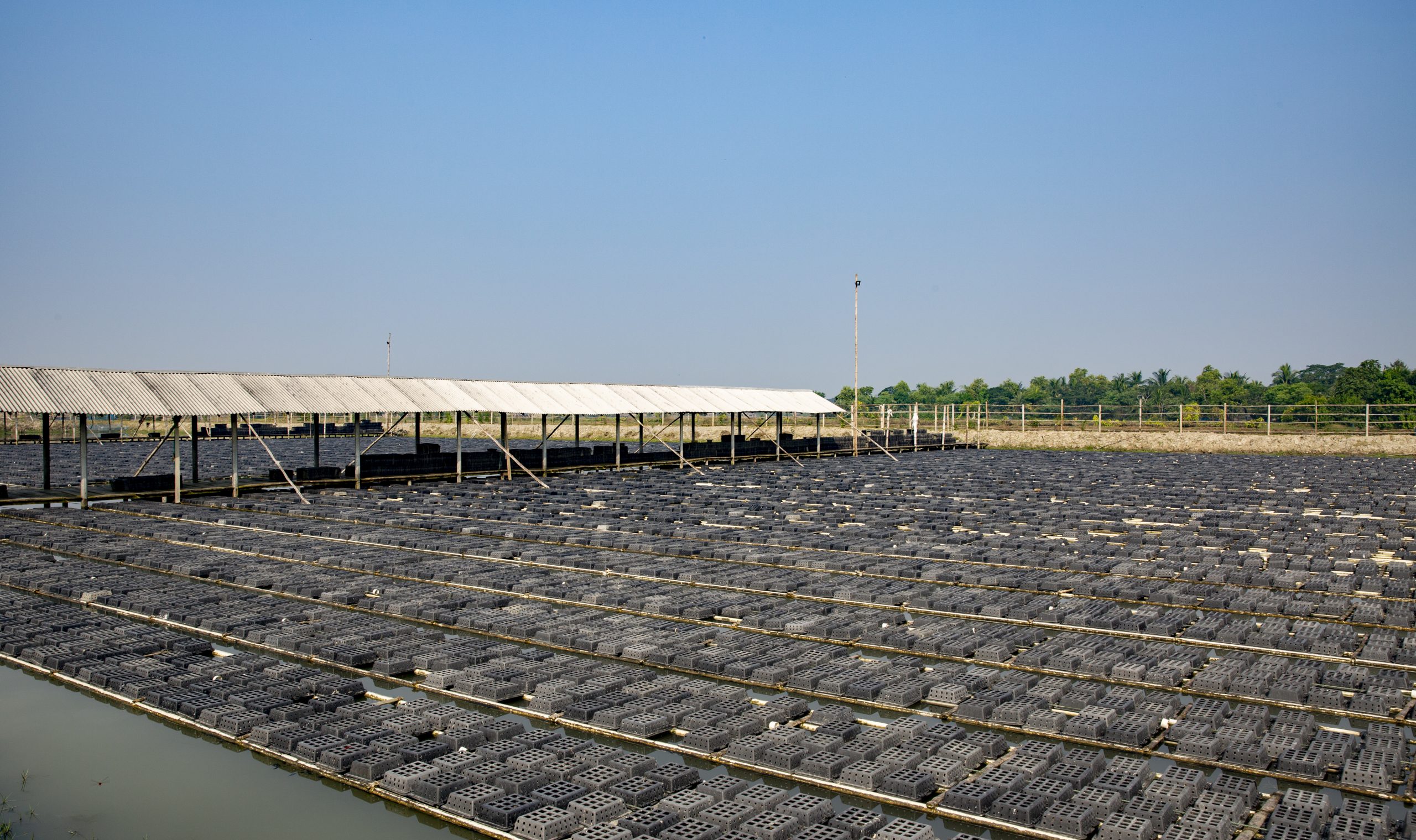
The PKSF has made a commendable headway in enhancing production efficiencies and expanding markets of the business activities relating to value chain and technology transfer support. The notable business cluster-based interventions of the PKSF are the transfer of crab hatchery technologies from Vietnam to Bangladesh and the setting up of the country’s first-ever crab hatchery in Shyamnagar, Satkhira, to promote the export-oriented crab culture sub-sector. Small-scale crab hatcheries are now being set up at household level following the model crab hatchery established in Satkhira.
The extension of salinity-tolerant BARI-6 mung bean among the farmers of salinity-affected areas and linking them with the export market is another successful initiative of the PKSF. Value chain and technology transfer support are in place for different sub-sectors of livestock, fisheries and horticulture sectors. With these support mechanisms, small producers and microenterprises get sustainably linked with suppliers and downstream enterprises.
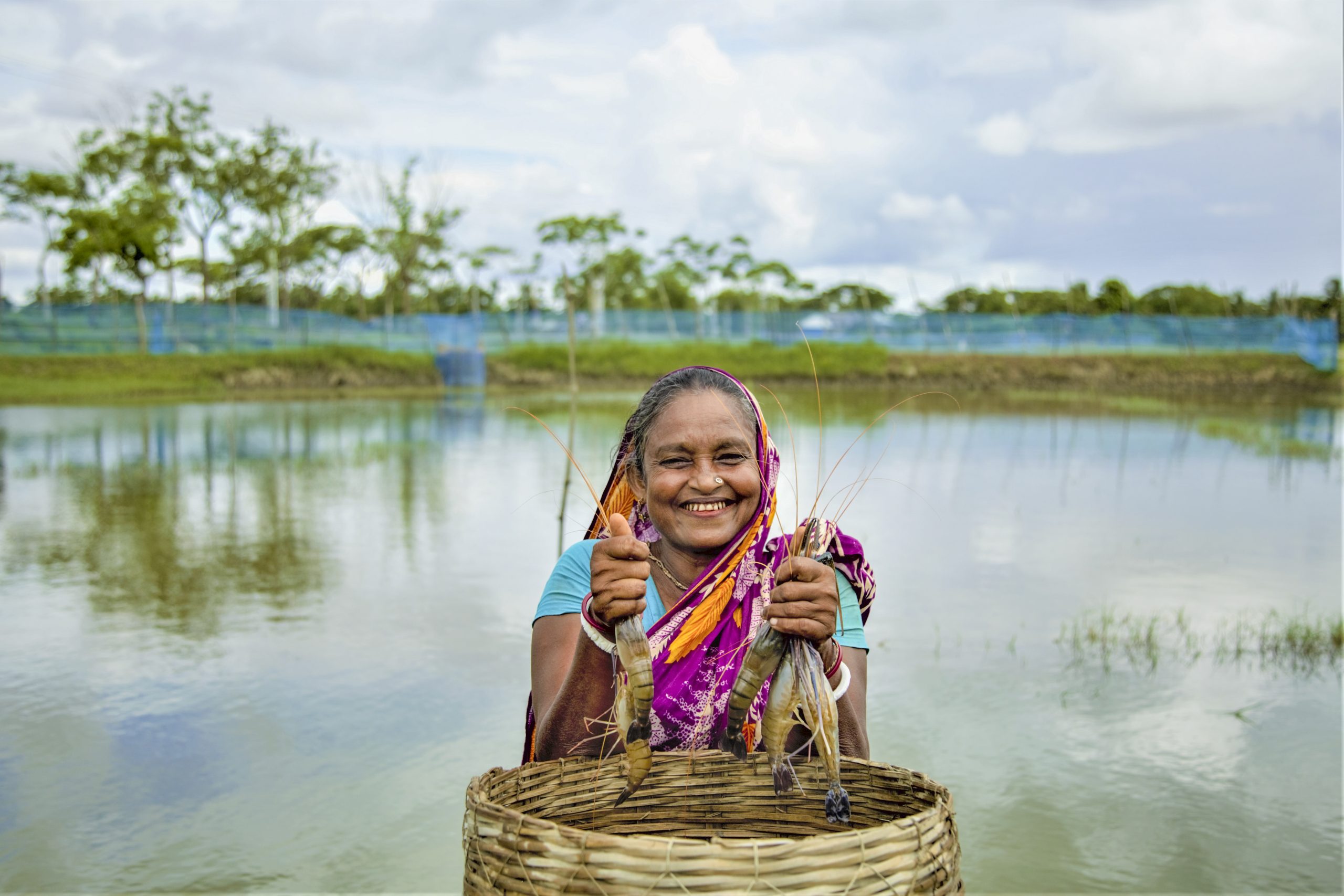
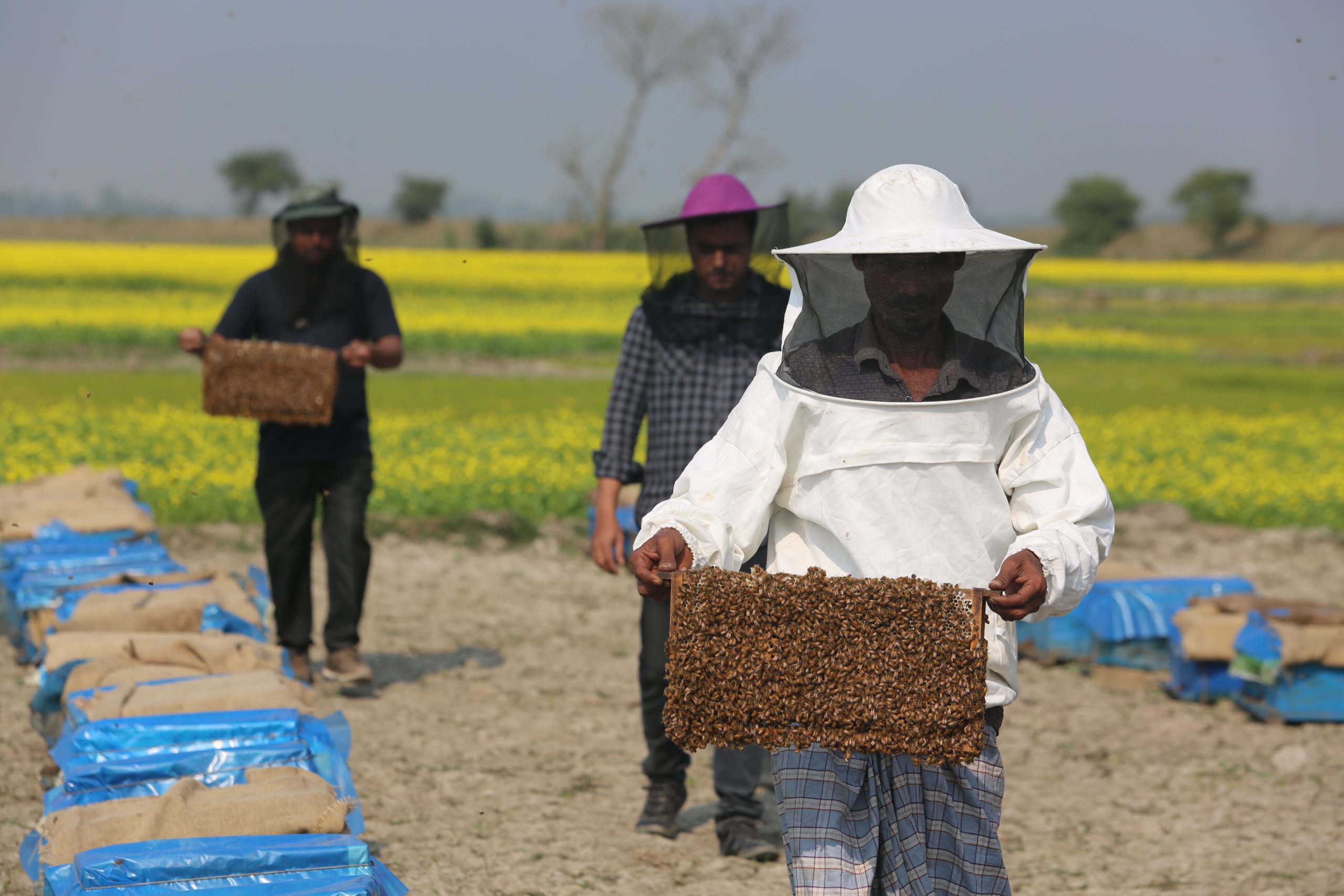
The establishment of a tissue culture lab for floriculture sub-sector of Jashore, the Halda River Research Laboratory at Chattogram University, the introduction of common service centres through entrepreneurs in different business clusters like micro-shoe industry of Bhairab, mini-garment cluster in Pabna, automobile workshop business cluster in Jashore are the major interventions of the PKSF. To provide micro-entrepreneurs’ access to e-commerce services, the PKSF plans to set up an e-platform exclusively for online marketing of the ME products. This will be further expanded in the coming years. The PKSF’s interventions in the ME sector impacted to a great extent in augmenting the income of small producers and creating opportunities for new employment.
